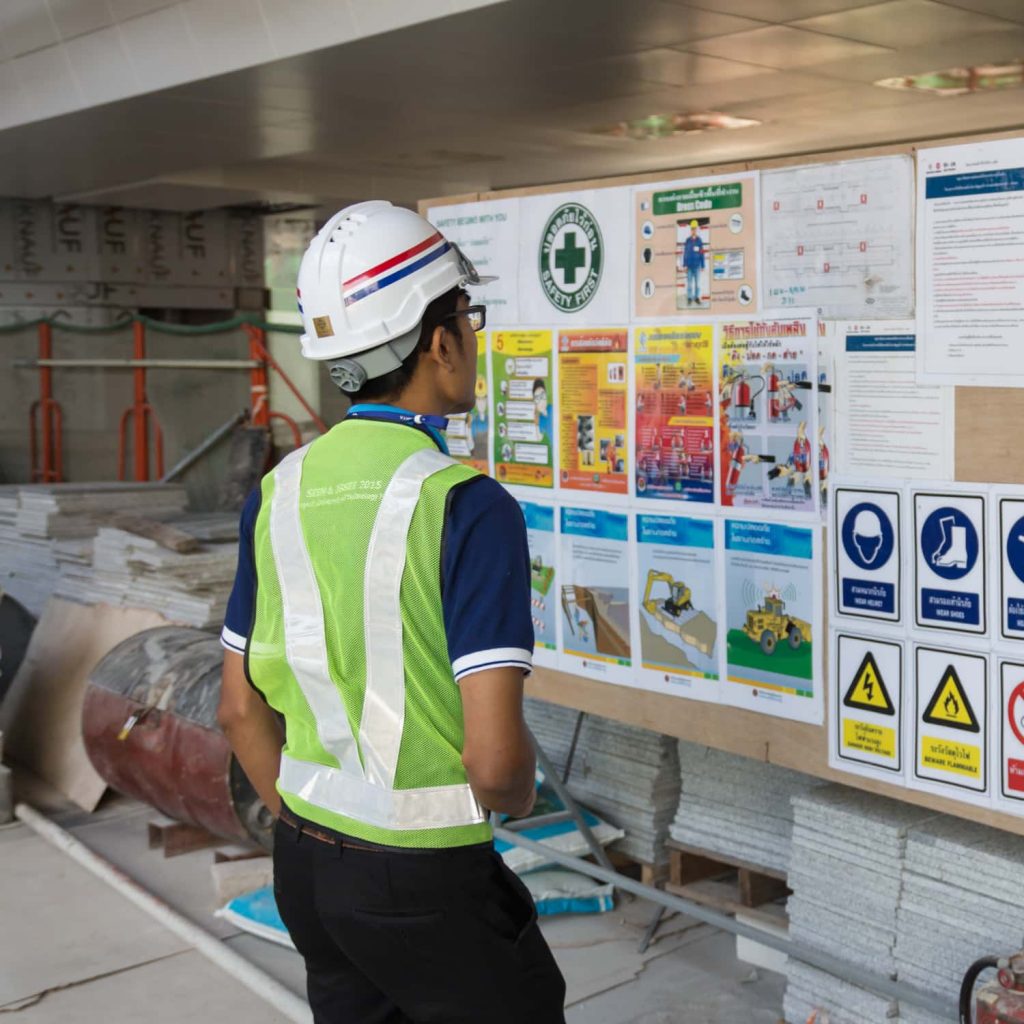![]() Powering On-Road Safety Solutions
Powering On-Road Safety Solutions
Chain of Responsibility Training
Chain of Responsibility training is designed to educate businesses and individuals on their responsibilities under the CoR laws.
The Importance of Chain of Responsibility Training for Businesses in Australia
As a business owner or operator in Australia, it is crucial to understand the concept of chain of responsibility (CoR) and the responsibilities that come with it. CoR is a legal concept that holds everyone in the supply chain accountable for ensuring compliance with road transport laws and regulations. In this article, we will discuss the importance of CoR training and the various CoR training options available in different states of Australia.
Chain of Responsibility (CoR) is a legal concept that holds everyone involved in the supply chain accountable for ensuring compliance with road transport laws and regulations.
What is Chain 0f Responsibility Training?
Chain of Responsibility training is designed to educate businesses and individuals on their responsibilities under the CoR laws. This training covers the legal obligations and requirements under the Heavy Vehicle National Law (HVNL) and ensures that everyone involved in the supply chain understands their duties and liabilities. CoR training aims to reduce the risk of non-compliance and enhance safety outcomes for all road users.
CoR training covers various aspects such as:
- The legal requirements of the HVNL
- The roles and responsibilities of each party in the supply chain
- The consequences of non-compliance
- The importance of record-keeping and documentation
- The management of fatigue, speed, and load restraint
- The identification and management of risks in the supply chain


Chain of Responsibility Training Requirements
The HVNL mandates that all parties in the supply chain must have a thorough understanding of their CoR obligations. The CoR laws apply to everyone, from the driver to the business owner, and failure to comply with the laws can result in severe penalties. To ensure compliance, businesses must provide adequate training to their staff and contractors on their CoR responsibilities.
Apart from the legal requirements, CoR training also provides numerous benefits to businesses, such as:
- Improved safety outcomes and reduced risk of accidents
- Reduced risk of non-compliance and associated penalties
- Improved efficiency in supply chain operations
- Enhanced reputation and credibility in the industry
- Improved staff morale and job satisfaction
Common Examples of those who may be held accountable
- Executives
- Consignees
- Consignors
- Employers
- Operators
- Packer
- Prime Contractors
- Loading Managers
- Scheduler
- Loaders/Unloaders
A message from the director of MAEZ, Matthew Wragg
“Your prospective customers don’t ask about the cost in their first line of questioning anymore. They ask about YOUR safety system.” Chain of responsibility impacts the entire Supply Network, are you ready to provide your safety detail?
MAEZ Chain of Responsibility Training Course
Chain of Responsibility Training Options in Australia
There are several CoR training options available in different states of Australia.
Chain of Responsibility Online Training
With the rise of technology and the increasing demand for flexibility and convenience, many training providers now offer Chain of Responsibility training courses online. This allows individuals and organisations to complete the required training at their own pace and in their own time, without the need to attend face-to-face workshops.
Online training courses for CoR cover a range of topics, including the legal framework of the CoR laws, the roles and responsibilities of duty holders, risk management, and compliance measures. Some providers also offer interactive online training courses, which allow participants to ask questions and receive feedback in real-time
Chain of Responsibility Awareness Training
In addition to the required CoR training for duty holders, it is also important to raise awareness of the CoR laws and the importance of compliance among all employees and stakeholders within the transport industry. This can help to create a culture of safety and responsibility, and reduce the risk of non-compliance and associated penalties.
Chain of Responsibility awareness training can cover a range of topics, including the legal framework of the CoR laws, the roles and responsibilities of duty holders, the consequences of non-compliance, and best practices for managing risks and ensuring compliance. This training can be delivered through a range of formats, including online courses, face-to-face workshops, and toolbox talks.

Chain of Responsibility Training Victoria
In Victoria, Chain of Responsibility (CoR) laws apply to road transport activities that take place within the state. This includes all vehicles that have a Gross Vehicle Mass (GVM) of more than 4.5 tonnes, as well as buses and vehicles carrying dangerous goods.
The CoR laws in Victoria are regulated by the National Heavy Vehicle Regulator (NHVR), and the state has its own specific guidelines for compliance. The Victorian Transport Association (VTA) offers a range of training options to help individuals and organisations understand their responsibilities under the CoR laws.
Very similarily to MAEZ, VTA also offers customized CoR training to businesses based on their specific needs and requirements. The training can be conducted on-site or online, and the participants receive a certificate upon completion.
Chain of Responsibility Training Queensland
In Queensland, the CoR laws apply to all vehicles with a GVM of more than 4.5 tonnes, as well as buses and vehicles carrying dangerous goods. The laws are regulated by the NHVR, and the state government has its own specific guidelines for compliance.
The Queensland Trucking Association (QTA) provides a range of training options to help individuals and organisations meet their CoR obligations. This includes online training courses, face-to-face workshops, and customised training programs tailored to specific industry needs.
Chain of Responsibility Training New South Wales
In New South Wales, the CoR laws apply to all vehicles with a GVM of more than 4.5 tonnes, as well as buses and vehicles carrying dangerous goods. The laws are regulated by the NHVR, and the state government has its own specific guidelines for compliance.
The Roads and Maritime Services (RMS) in NSW offer a range of training options to help individuals and organisations meet their CoR obligations. This includes online training courses, face-to-face workshops, and customised training programs tailored to specific industry needs.
Chain of Responsibility Training South Australia
In South Australia, the CoR laws apply to all vehicles with a GVM of more than 4.5 tonnes, as well as buses and vehicles carrying dangerous goods. The laws are regulated by the NHVR, and the state government has its own specific guidelines for compliance.
The South Australian Road Transport Association (SARTA) provides a range of training options to help individuals and organisations meet their CoR obligations. This includes online training courses, face-to-face workshops, and customised training programs tailored to specific industry needs.
On-road risks are everywhere, and it's time to fix it.
MAEZ use innovative safety strategies and creative problem-solving methodologies to help companies and leaders remove their risks.
Along the way, we discovered that removing risks requires a deep understanding of complicated Supply Chains and the downward pressures placed upon the Supply Chain leaders.

Chain of responsibility training is a critical aspect of compliance for businesses operating in the transport industry. The CoR laws aim to ensure that everyone in the supply chain is held responsible for the safe transportation of goods, and that they take all reasonable steps to prevent breaches of road transport laws.
The consequences of non-compliance with CoR laws can be severe, including financial penalties, imprisonment, and damage to a business’s reputation. By providing comprehensive CoR training to employees and contractors, businesses can reduce the risk of breaches and ensure that they are meeting their legal obligations.
Moreover, effective CoR training helps to create a safety-conscious culture within an organization. It teaches employees about their responsibilities and the importance of complying with the law, and provides them with the knowledge and skills to identify and address potential safety risks. This ultimately leads to safer roads for all users, including transport operators, drivers, and the general public.
In addition, compliance with CoR laws is becoming increasingly important for businesses seeking to win contracts or secure partnerships with larger companies. Many larger companies now require their suppliers and contractors to comply with CoR laws, as part of their own risk management strategies.
Overall, investing in CoR training is not only a legal requirement but also a smart business decision. By ensuring that employees and contractors understand their responsibilities and are equipped with the skills and knowledge needed to comply with CoR laws, businesses can protect themselves from legal and reputational risks, while promoting safety and efficiency within their operations.